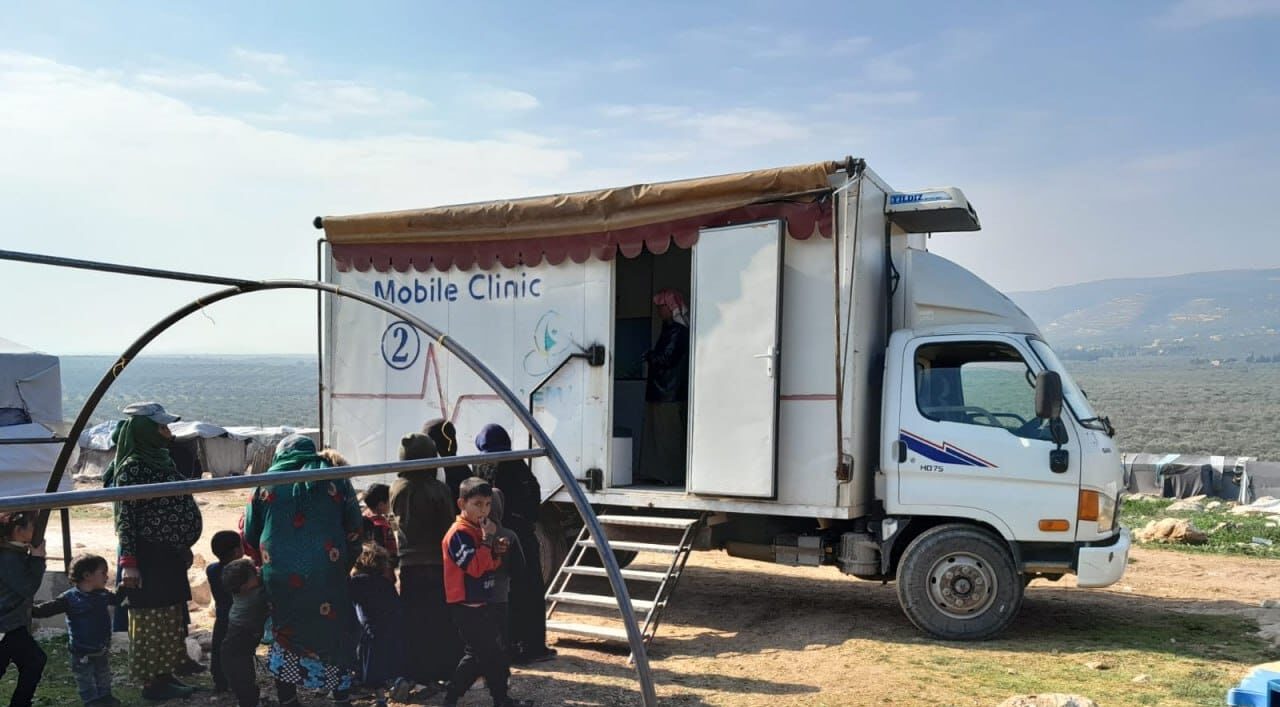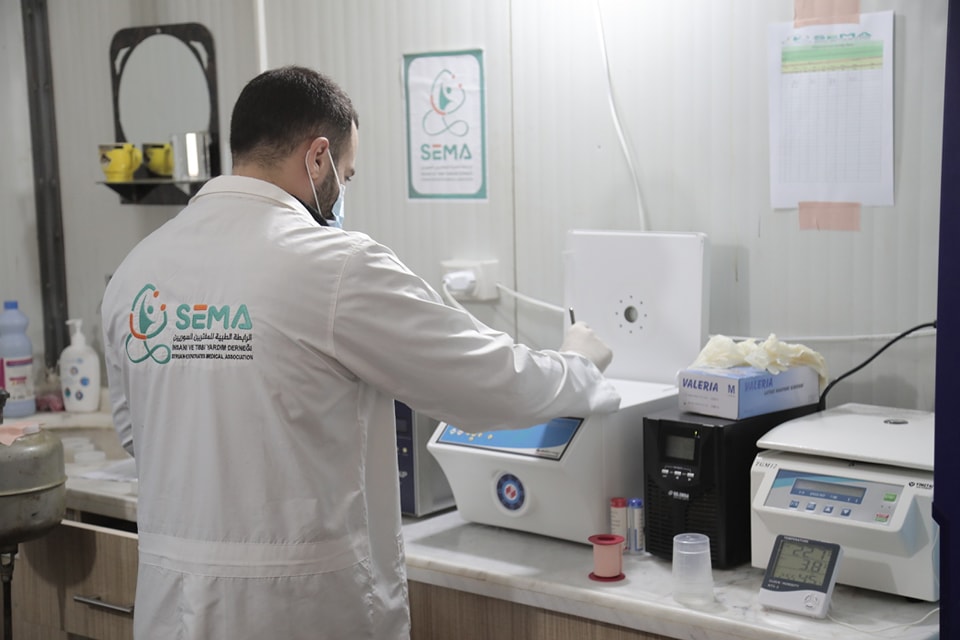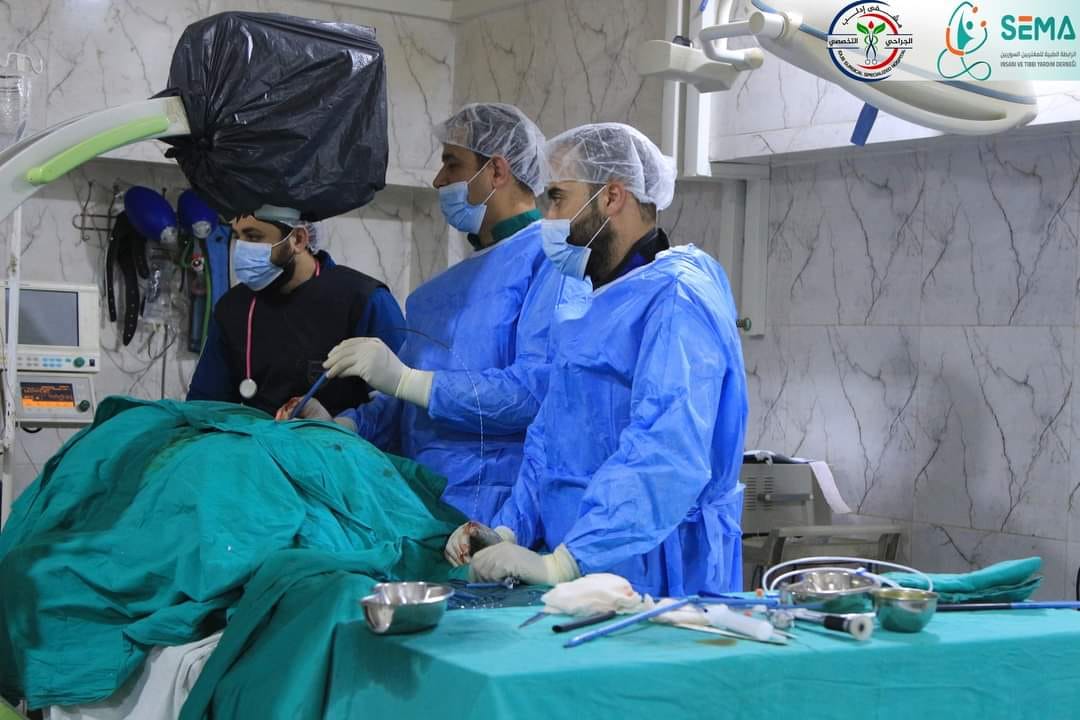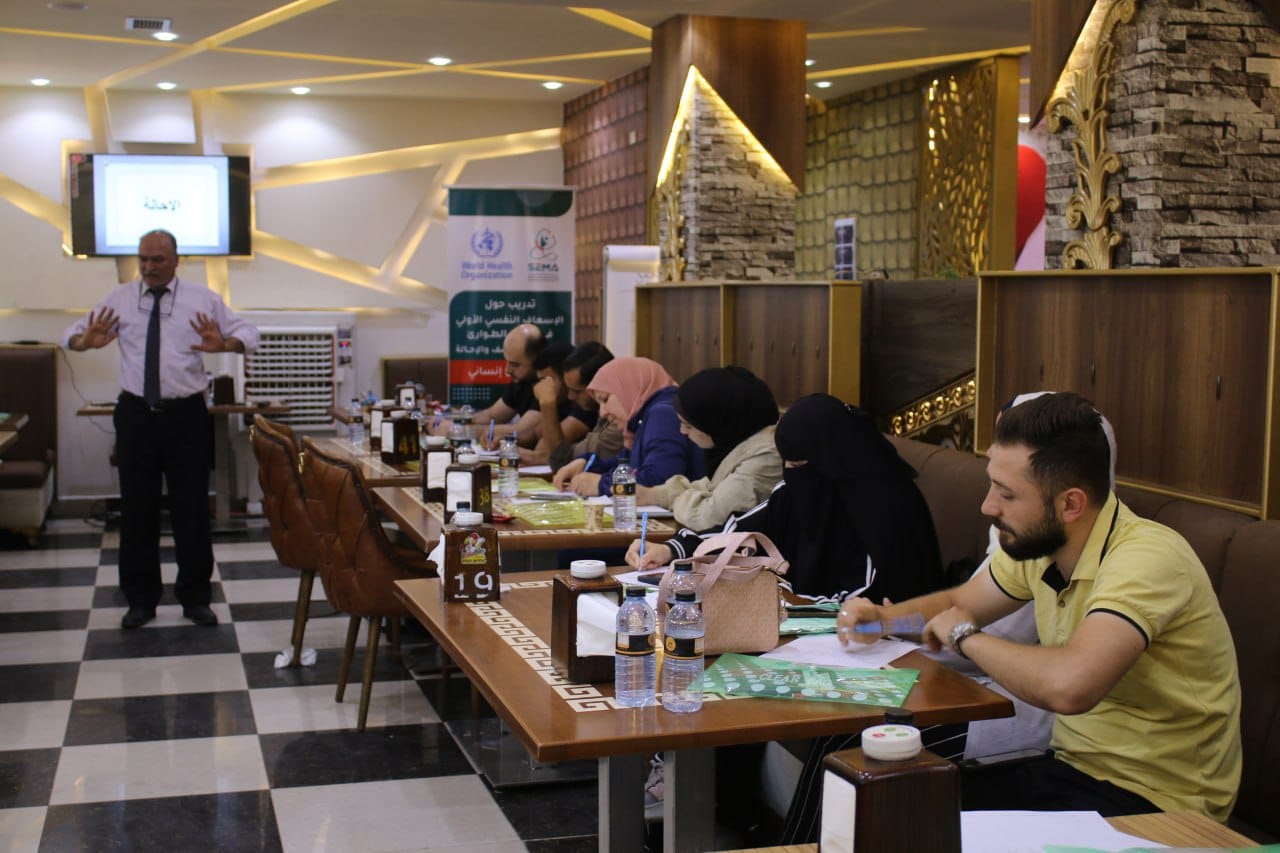Mobile health clinics are portable healthcare units designed to deliver medical services to isolated and remote areas, such as underserved refugee communities.
In refugee communities, many patients don’t have access to medical services due to the absence of healthcare infrastructure in such areas and the long costly trips refugees need to make to capital areas to get healthcare services.
This is where the role of portable clinics comes into play, as they provide refugee patients with the urgent health care they need.
What are mobile health clinics?
Mobile clinics are medical facilities and medical staff that reach out to patients in isolated places or places with no access to healthcare services.
Mobile clinics might be the only source to address the healthcare needs of many refugees, vulnerable groups, and newly displaced populations.
In times of crisis or emergencies, for example, World Health Organization (WHO) arranges for immediate response to the affected places so that mobile clinics can go there with any means of transportation.
What is the importance of mobile health clinics?
Thanks to mobile clinics, many health specialists can now have access to many underserved refugee communities to deliver health services to those in need.
With mobile clinics, refugee patients can immediately get treated and medically examined.
This is because mobile clinics eliminate the downtime between appointments by directly visiting the patient. Mobile medical clinics can be equipped with all sorts of medical technologies to treat different kinds of diseases.
In addition, with mobile clinics, health professionals can respond timely to refugee patients’ current and evolving health needs.
They are also affordable prevention services that could minimize the amount of care needed by refugees over time. Mobile clinics can also offer a wide range of different medical services, including:
- Primary care.
- Urgent care.
- Dental care.
- Prenatal care.
- Chronic disease management.
- Behavioral health services.
- Pediatric care.
- Preventive health screenings.
Benefits of mobile health clinics
Mobile clinics offer many advantages for many patients in underserved refugee communities. These include:
- Mobile clinics are cost-effective: Since there is a huge burden on hospitals to serve refugees in need of medical services, mobile clinics can make trips to patients’ locations. This step can reduce the number of costly trips patients need to make to visit emergency units or hospitals.
- Portable clinics are equipped with quality healthcare services. This is because mobile clinics operate according to the same regulations and policies as traditional hospitals. Sometimes such clinics undergo a thorough audit process from health authorities to make sure they are reliable.
- Mobile healthcare facilities are equipped with innovative technologies to deliver the needed medical care services in many medical areas, such as orthopedics, dentistry, urology, and ophthalmology. By providing effective early diagnosis services, mobile clinics can stop the spread of many diseases.
- Portable clinics provide all-inclusive healthcare services. This is because such clinics provide primary healthcare services, such as testing, screening, and consultation.
- Mobile clinics are located in convenient places for many refugees. By being placed in remote areas, they ensure that refugees in such places get access to quality medical services.
Mobile health clinic services
Portable health clinics offer many services for refugees who reside in remote and isolated areas. Such mobile clinics provide chronic disease management, health screenings, and community collaborations. Other healthcare services include:
- Anticoagulation/INR checks.
- Chronic disease checks.
- Acute illness/infection.
- Immunizations.
- Preventive services.
- Wellness visits.
SEMA and health care services
SEMA has many contributions when it comes to providing healthcare facilities for refugees. Such contributions stem from SEMA’s aim to improve the lives of many refugees who have no access to healthcare facilities. SEMA’s offered services in the healthcare sector for refugees include:
- Facilitating refugees’ access to healthcare services by placing portable health clinics in refugee areas.
- Equipping mobile health clinics with recent medical technologies and equipment.
- Offering refugees the necessary medical treatment and medications.
- Launching campaigns to educate refugees on harmful health practices and encouraging them to let go of such practices.
- Applying preventive disease measures and health screenings to reduce the possibility of disease emergence in the future.
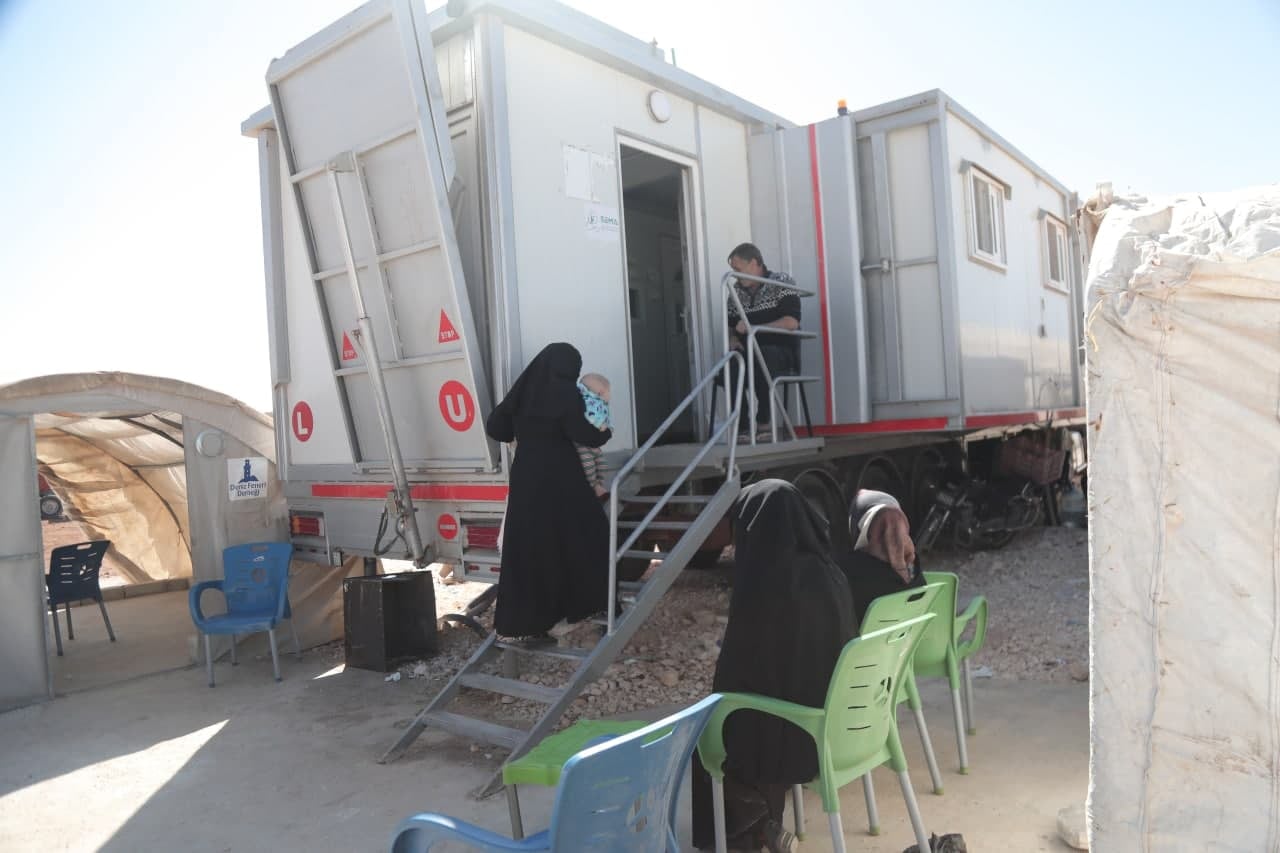
Donate now to provide refugees with health care services
Your donations can help many refugees in remote and isolated areas to get access to the necessary healthcare services they need.
With your financial contributions, you can help build many mobile health clinic projects which will facilitate the access of many refugee patients to the treatment and medical care they need.
In addition, your donations will help equip such portable clinics with the necessary healthcare equipment and health professionals.
FAQ
What is the meaning of a mobile clinic?
Mobile clinics are movable healthcare units that provide healthcare services to individuals in remote and isolated areas, such as refugee communities.
What challenges do mobile clinics face?
Weaknesses of mobile clinics include:
– Lack of funding for mobile clinic services.
– Lack of funding for health professionals.
– Lack of evidence about the reliability of such healthcare facilities.
– Repeated updates and changes of macro policies in these clinics.
– Lack of periodical evaluation of these clinics.
What is the function of a mobile clinic?
A mobile clinic is a vehicle that travels to underserved communities to provide healthcare for vulnerable groups of people. Mobile clinics offer many health services and are staffed by health professionals, physicians, and nurses.
What are 3 different types of clinics?
– Community health centers.
– Mobile clinics.
– Free charitable clinics.
Resources
- Investigation of mobile clinics and their challenges.
- 10 Types of Health Clinics and the Services Provided.
- Investigation of mobile clinics and their challenges.
- 6 Major Benefits of Mobile Clinics.
- How Do Mobile Health Clinics Improve Access to Health Care?

